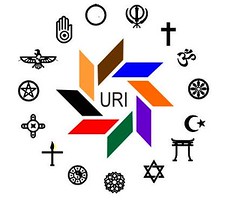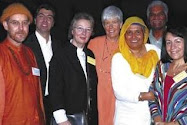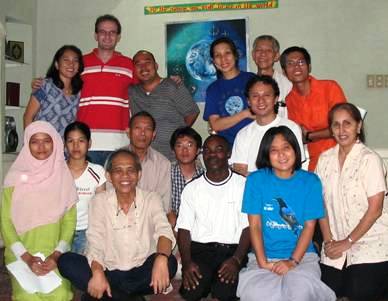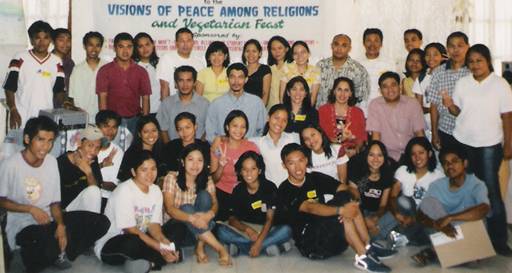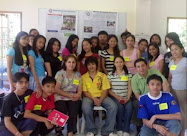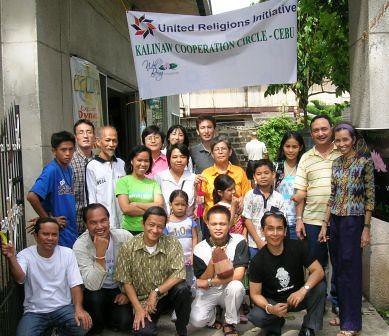The GOLDEN RULE is the most fundamental common ethical denominator of all religious and non-religious belief systems on Earth.
It means: “TREAT OTHERS AS YOU WOULD LIKE TO BE TREATED” or “Do not treat others as you would not like to be treated”.
This is the basic law of peaceful human coexistence and can, therefore, be characterized as the mother of ethics or the constitution of humankind.
As a matter of fact, the GOLDEN RULE is found in the holy scriptures of all major religions and faiths – in different words but with the same divine meaning.
Below are the interpretations of the Golden Rule in the different faith traditions:
 "This is the sum of duty: do naught unto others which would cause you pain if done to you."
"This is the sum of duty: do naught unto others which would cause you pain if done to you."— Mahabharata 5:1517
 What is hateful to you, do not do to your neighbor: that is the whole Torah (the basic law); all the rest of it is commentary; go and learn."
What is hateful to you, do not do to your neighbor: that is the whole Torah (the basic law); all the rest of it is commentary; go and learn." "That nature alone is good which refrains from doing unto another whatsoever is not good for itself"
"That nature alone is good which refrains from doing unto another whatsoever is not good for itself"BUDDHISM:
 "A state that is not pleasing or delightful to me, how could I inflict that upon another?"
"A state that is not pleasing or delightful to me, how could I inflict that upon another?""Hurt not others in ways that you yourself would find hurtful."
 "Do not do to others what you do not want them to do to you"
"Do not do to others what you do not want them to do to you" "Regard your neighbor's gain as your own gain, and your neighbor's loss as your own loss."
"Regard your neighbor's gain as your own gain, and your neighbor's loss as your own loss." "The heart of the person before you is a mirror. See there your own form"
"The heart of the person before you is a mirror. See there your own form"  "A man should wander about treating all creatures as he himself would be treated."
"A man should wander about treating all creatures as he himself would be treated." "In everything, do to others as you would have them do to you; for this is the law (of God) and (the teachings of ) the prophets."
"In everything, do to others as you would have them do to you; for this is the law (of God) and (the teachings of ) the prophets."ISLAM:
 "No one of you is a believer until he desires for his brother that which he desires for himself."
"No one of you is a believer until he desires for his brother that which he desires for himself."  “If you haven't the will to gladden someone's heart, then at least beware lest you hurt someone's heart, for on our path, no sin exists but this."
“If you haven't the will to gladden someone's heart, then at least beware lest you hurt someone's heart, for on our path, no sin exists but this."SIKHISM:
 “Do as you desire goodness for yourself as you cannot expect tasty fruits if you sow thorny trees.”
“Do as you desire goodness for yourself as you cannot expect tasty fruits if you sow thorny trees.”— Sri Guru Granth Sahib, Slok 23, p. 1379
BAHA'I:
 "Ascribe not to any soul that which thou wouldst not have ascribed to thee, and say not that which thou doest not."
"Ascribe not to any soul that which thou wouldst not have ascribed to thee, and say not that which thou doest not."  "And it harm no one, do what thou wilt."
"And it harm no one, do what thou wilt."— The Wiccan Rede
 "Do not wrong or hate your neighbor. For it is not he who you wrong, but yourself."
"Do not wrong or hate your neighbor. For it is not he who you wrong, but yourself."(a Pima proverb)
 "One going to take a pointed stick to pinch a baby bird should first try it on himself to feel how it hurts."
"One going to take a pointed stick to pinch a baby bird should first try it on himself to feel how it hurts." "Do not strive to cause your neighbor’s undoing, for as you strive for your own good treatment, so render it to others."
"Do not strive to cause your neighbor’s undoing, for as you strive for your own good treatment, so render it to others." "That which you do not want others to do unto your spouse, child and sibling, do not do to another's spouse, child and sibling."
"That which you do not want others to do unto your spouse, child and sibling, do not do to another's spouse, child and sibling."— Emilio Jacinto, Kartilya ng Katipunan
 "Do not do unto others what angers you if done to you by others."
"Do not do unto others what angers you if done to you by others." "We affirm and promote respect for the interdependent of all existence of which we are a part."
"We affirm and promote respect for the interdependent of all existence of which we are a part."Let us try to make the Golden Rule and the many other common ethical standards and shared moral values to be accepted as the global ethic of human kind by as many people as possible!
We should do this not only in our families but also in the school system. This means that education about the Golden Rule, shared moral values and common ethical standards should become an integral part of the curricula. Such an education would be a peaceful but forceful weapon against the spread of extremism on all sides.
Obviously, if the great majority of people practice the Golden Rule, we would definitely live in a better and much more peaceful and just world.
(by Peter Schier, Konrad Adeneur Foundation & inaugural member of MIN-CC, Malaysia)
